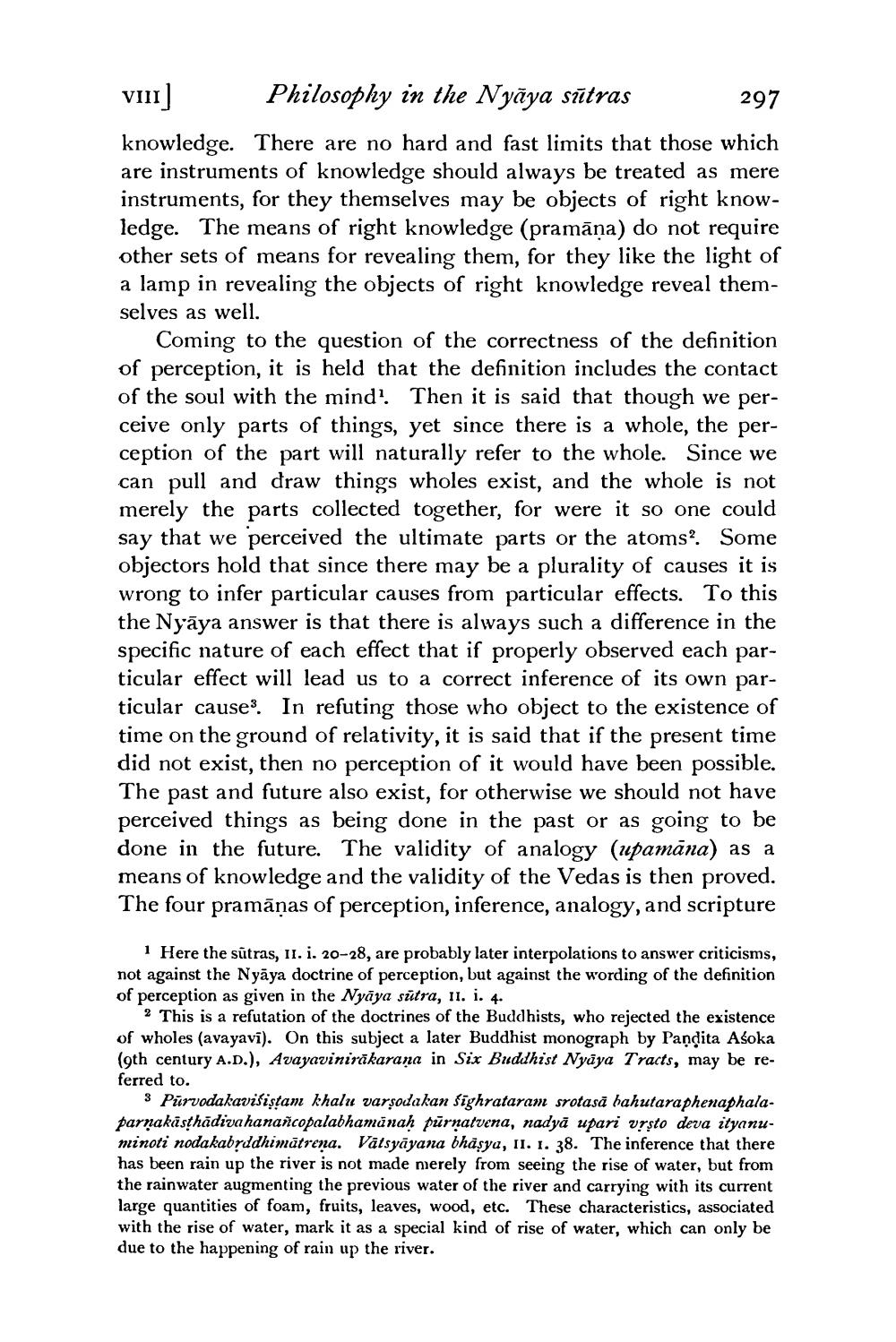________________
viii Philosophy in the Nyāya sūtras 297 knowledge. There are no hard and fast limits that those which are instruments of knowledge should always be treated as mere instruments, for they themselves may be objects of right knowledge. The means of right knowledge (pramāna) do not require other sets of means for revealing them, for they like the light of a lamp in revealing the objects of right knowledge reveal themselves as well.
Coming to the question of the correctness of the definition of perception, it is held that the definition includes the contact of the soul with the mind? Then it is said that though we perceive only parts of things, yet since there is a whole, the perception of the part will naturally refer to the whole. Since we can pull and draw things wholes exist, and the whole is not merely the parts collected together, for were it so one could say that we perceived the ultimate parts or the atoms? Some objectors hold that since there may be a plurality of causes it is wrong to infer particular causes from particular effects. To this the Nyāya answer is that there is always such a difference in the specific nature of each effect that if properly observed each particular effect will lead us to a correct inference of its own particular cause? In refuting those who object to the existence of time on the ground of relativity, it is said that if the present time did not exist, then no perception of it would have been possible. The past and future also exist, for otherwise we should not have perceived things as being done in the past or as going to be done in the future. The validity of analogy (upamāna) as a means of knowledge and the validity of the Vedas is then proved. The four pramānas of perception, inference, analogy, and scripture
1 Here the sūtras, 11. i. 20-28, are probably later interpolations to answer criticisms, not against the Nyāya doctrine of perception, but against the wording of the definition of perception as given in the Nyāya sutra, 11. i. 4.
2 This is a refutation of the doctrines of the Buddhists, who rejected the existence of wholes (avayavi). On this subject a later Buddhist monograph by Pandita Asoka (9th century A.D.), Avayavinirākarana in Six Buddhist Nyāya Tracts, may be referred to.
3 Pūrvodakavišistam khalu varsodakan Sighrataram srotasā bahutaraphenaphalaparņakasthādivahanañcopalabhamanah pürnatvena, nadya upari vrsto deva ityanuminoti nodakabrddhimātrena. Vätsyāyana bhâsya, II. 1. 38. The inference that there has been rain up the river is not made merely from seeing the rise of water, but from the rainwater augmenting the previous water of the river and carrying with its current large quantities of foam, fruits, leaves, wood, etc. These characteristics, associated with the rise of water, mark it as a special kind of rise of water, which can only be due to the happening of rain up the river.




